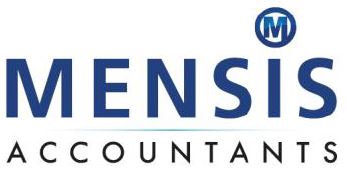MTD for VAT came into force from April 2019, which means that all VAT registered business with a turnover of £85,000 or more will have to file their VAT Returns using a compliant piece of software. MTD for VAT will be extended to all VAT registered businesses at a later date. It will become mandatory for income tax and corporation tax reporting by some businesses and landlords. The reforms do not attempt to simplify the tax system; only the way it is administered.
What is “Making Tax Digital?
In January 2017 HMRC announced that all businesses and individuals will have to file their accounting information digitally. The government has changed its original timetable and now wants MTD to be fully digital by 2021, at the earliest.
HMRC began to digitise tax with the introduction of Payroll Real Time Information in April 2018. This meant that all payroll taxes had to be reported online, through compliant software or HMRC’s website.
From April 2019, Making Tax Digital for VAT came into force. VAT registered businesses with a turnover of over £85,000 have to start reporting their VAT Returns using HMRC approved software. This is regardless of whether the returns are filed monthly, quarterly or annually. Each individual will need to sign up to MTD for VAT or use their account to do so on their behalf.
If you own a business, a partnership, are self-employed or a landlord you will need to file quarterly updates with HMRC, which is expected to start from April 2021. There will be time after the end of each accounting period to make any adjustments to the updates that have been filed. HMRC has announced a six month deferral to the start date for some more complex businesses. Further details will be published in the coming months.
Mensis can advise on the best and most cost effective way of dealing with these changes, in order to make your life easier. This will include the best software for you to be MTD compliant and help you deal with the increased legislation of MTD.
Making Tax Digital – further information
Cash basis
HMRC is proposing to allow unincorporated business with up to £150,000 of turnover to use the cash basis for their financial filings. This would allow certain adjustments for debtors, creditors etc. to be ignored.
Companies
From 2021, most companies will also have to start filing quarterly updates to HMRC for corporation tax purposes. Further details will be published later.
Unincorporated landlords
Unincorporated landlords will be able to use the cash basis, so will only need to declare rental income they have actually received. Conversely, only payments actually made in the tax year would be allowable. Relief for the costs of buying furniture etc. would be give on a replacement basis.
No turnover limit is likely for landlords who wish to use cash accounting, as their businesses do not necessarily become more complex as they grow. The cash basis would, as is already the case for individual landlords, operate by reference to the tax year (6 April to 5 April).
Partnerships
A nominated partner in a partnership will file updates on behalf of all partners. These updates would feed directly into each partner’s digital tax account. As a result, each partner will not need software, nor need maintain their own digital records, unless they have other business interests.
It is proposed that limited liability partnerships (LLPs) and mixed partnerships will not be exempt from quarterly reporting, whatever their level of income.
Voluntary tax payments
Businesses will be able to make voluntary payments on a pay-as-you-go basis via their digital accounts. Any voluntary payments made will appear in the digital account of the taxpayer or business as a credit and will be allocated against liabilities as they become due, across their range of taxes. Any unused credits will be carried forward for future use. Taxpayers will be able to choose how and when to pay.
New penalties
A new points-based penalty system will be introduced.
Digital timetable
- April 2018 – Digitisation of income tax, National Insurance Contributions (NICs) and Capital Gains Tax (CGT)
- April 2019 – Digitisation of VAT
- April 2021 – Digitisation of income tax and corporation tax
